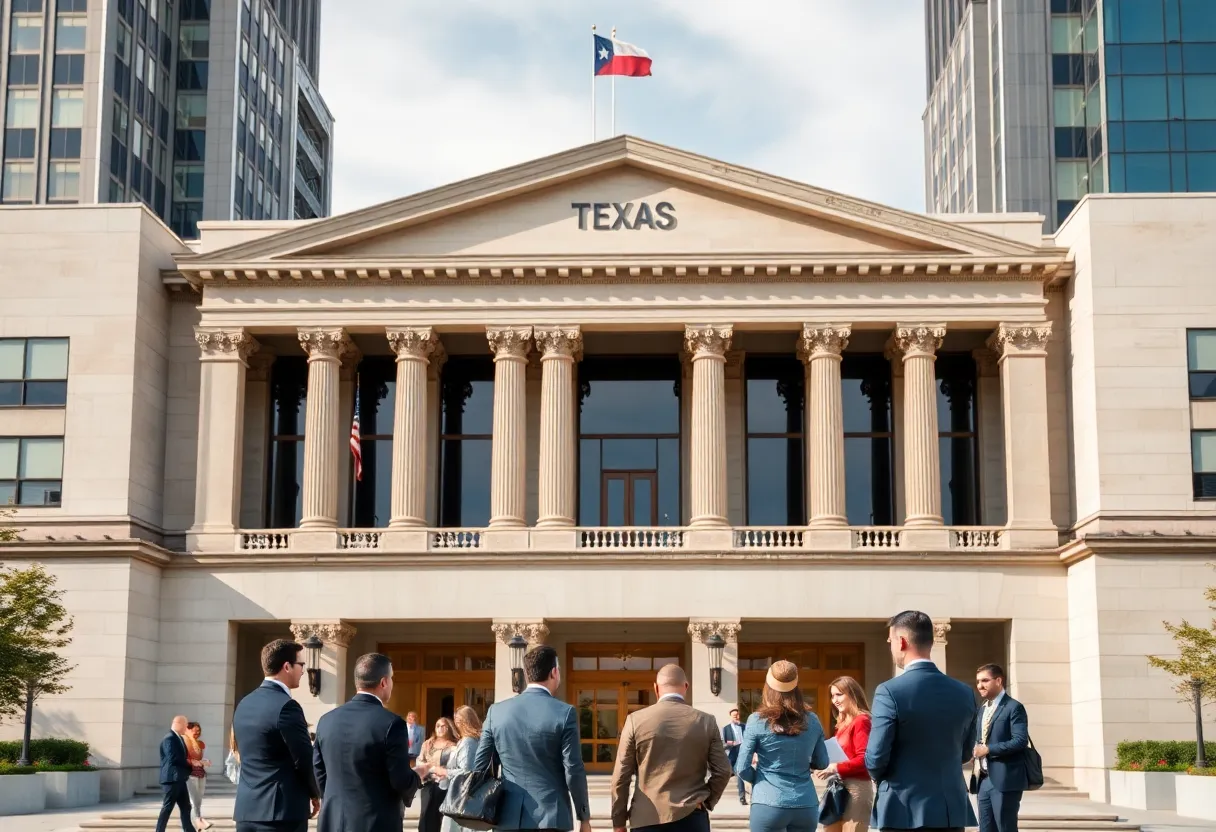

Texas Business Court Developments
In a landmark ruling, Texas Judge Melissa Andrews has determined that business courts will accept cases transferred from district courts if they are no older than 30 days. This new measure aims to streamline legal proceedings for complex business disputes, enhancing efficiency and accessibility within the Texas judicial system. The ruling highlights the importance of understanding jurisdiction and opens the door for potential ‘forum shopping,’ although regulations remain in place to manage this practice.
In a landmark ruling, a Texas judge has decided that the state’s business courts must accept cases transferred from district courts, provided those cases are no older than 30 days. Judge Melissa Andrews made this clear during a recent court session, making it easier for businesses seeking a fair trial to move their disputes to specialized forums designed to handle complex issues.
Picture this: you’re a company owner facing a tricky legal issue. You’ve made an important request in the district court, but the outcome isn’t what you had hoped for. Now, you find out about the business court, where cases like yours can be resolved more efficiently. Well, if your case is within that crucial 30-day window, you’re in luck! Judge Andrews’ ruling means you can transfer your case, keeping the wheels of justice turning without unnecessary delays.
This latest decision is particularly relevant as it opens the doors for potential forum shopping—where parties frustrated with initial court decisions can look for more favorable judgments elsewhere. While forum shopping can be viewed as a loophole, Judge Andrews reminds everyone that Texas has measures to regulate this practice.
This ruling stems from a case involving SafeLease Insurance Services, which recently removed its case to the business court after an earlier injunction request didn’t go as planned. The opposing parties, who license software to self-storage facilities, argued that SafeLease’s decision to move the case was too late, given their awareness of the business court’s jurisdiction. However, the ruling clarified that the clock for removals starts ticking when the suit is originally filed—not when one party learns about alternative court options.
In laying down the law, Judge Andrews emphasized that understanding jurisdiction correctly helps defendants make timely decisions about case removals. It sounds straightforward, but it can make a big difference in how these cases play out.
Established back in September 2024, the Texas business courts aim to handle complex and high-stakes disputes that often overwhelm district courts. By targeting cases where the controversy exceeds $5 million, these specialized courts are intended to expedite the judicial process and provide a more focused environment for complicated legal issues.
This system isn’t just an improvement for legal proceedings; it also serves to attract more companies to Texas. The state is positioning itself as a viable competitor to Delaware, known for its long-standing reputation in business law. With experienced judges steering the ship, Texas hopes to ensure that complex corporate disputes are handled with the utmost expertise.
The Texas Business Court is comprised of 11 divisions, each devoted to significant business and commercial disputes. By relocating high-dollar cases from traditional district courts, these divisions aim to deliver consistent results and faster resolutions. Whether it’s about innovative corporate governance matters or complex financial arrangements, businesses can benefit from a court system tailored specifically to their needs.
Not only do these courts aim to make the legal process smoother, but they also promise enhanced access to the judicial system. Businesses can expect quicker responses and resolutions when raising substantial issues within the $5 million threshold.
As Judge Andrews prepares for another hearing regarding the recent ruling, all eyes will be on how this dynamic reflects the larger trends in Texas business law. This latest initiative illustrates Texas’ ambition to create a business-friendly legal environment that caters to modern corporate needs.
So, whether you’re a business owner facing legal challenges or simply someone curious about how the Texas legal landscape is evolving, there’s no denying that things are heating up in the Lone Star State’s courtrooms!
News Summary The Monitor, a local news outlet, is set to undergo a name change…
News Summary More than 50 solar companies in Texas have united to advocate for the…
News Summary Texas lawmakers are addressing the controversial issue of credit card processing fees, which…
News Summary Dallas is on the verge of a tremendous economic shift, with an estimated…
News Summary Texas is bracing for a significant energy surge, with experts predicting the state's…
News Summary The Texas Legislature has reached a consensus on a property tax relief agreement…